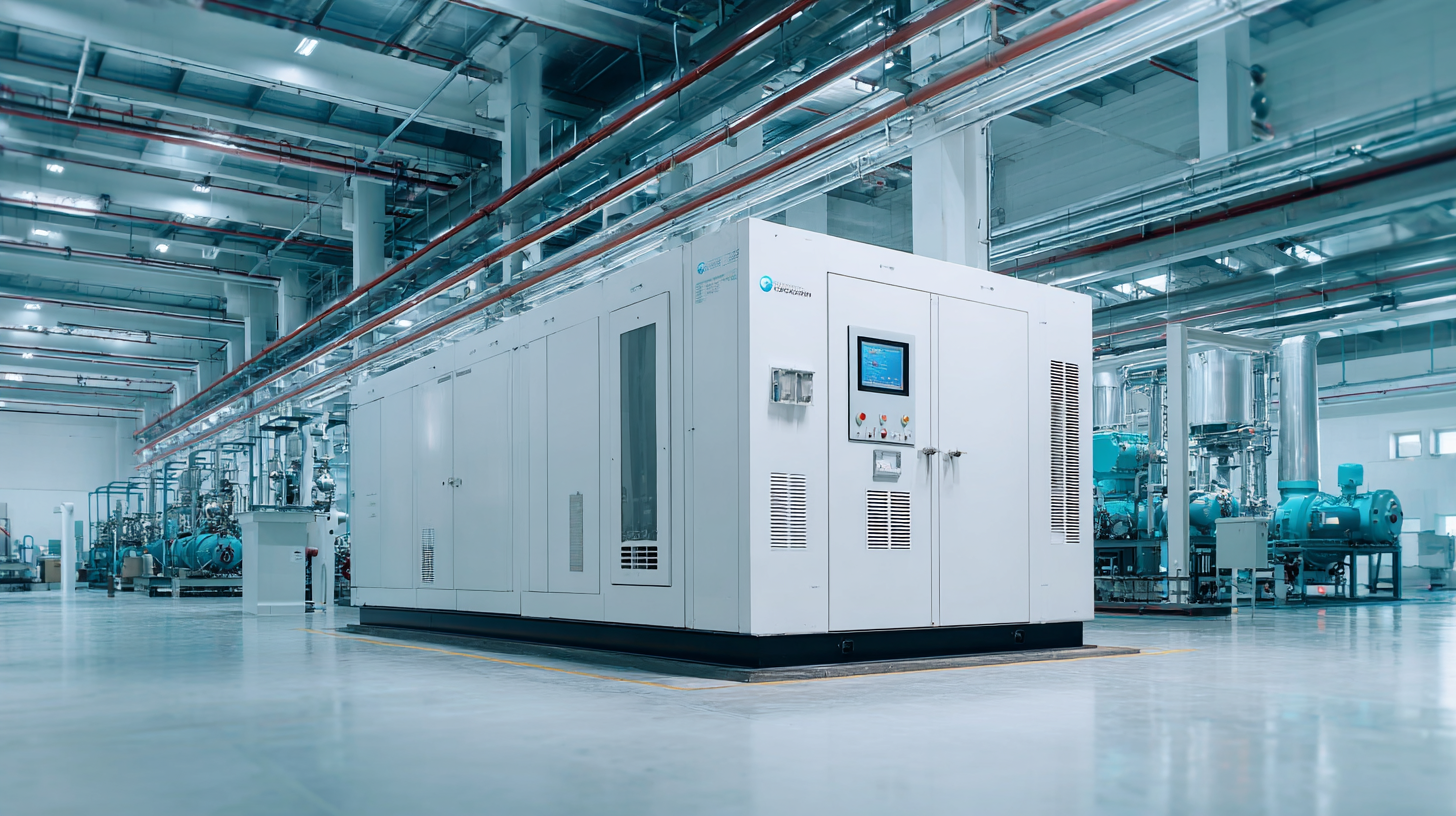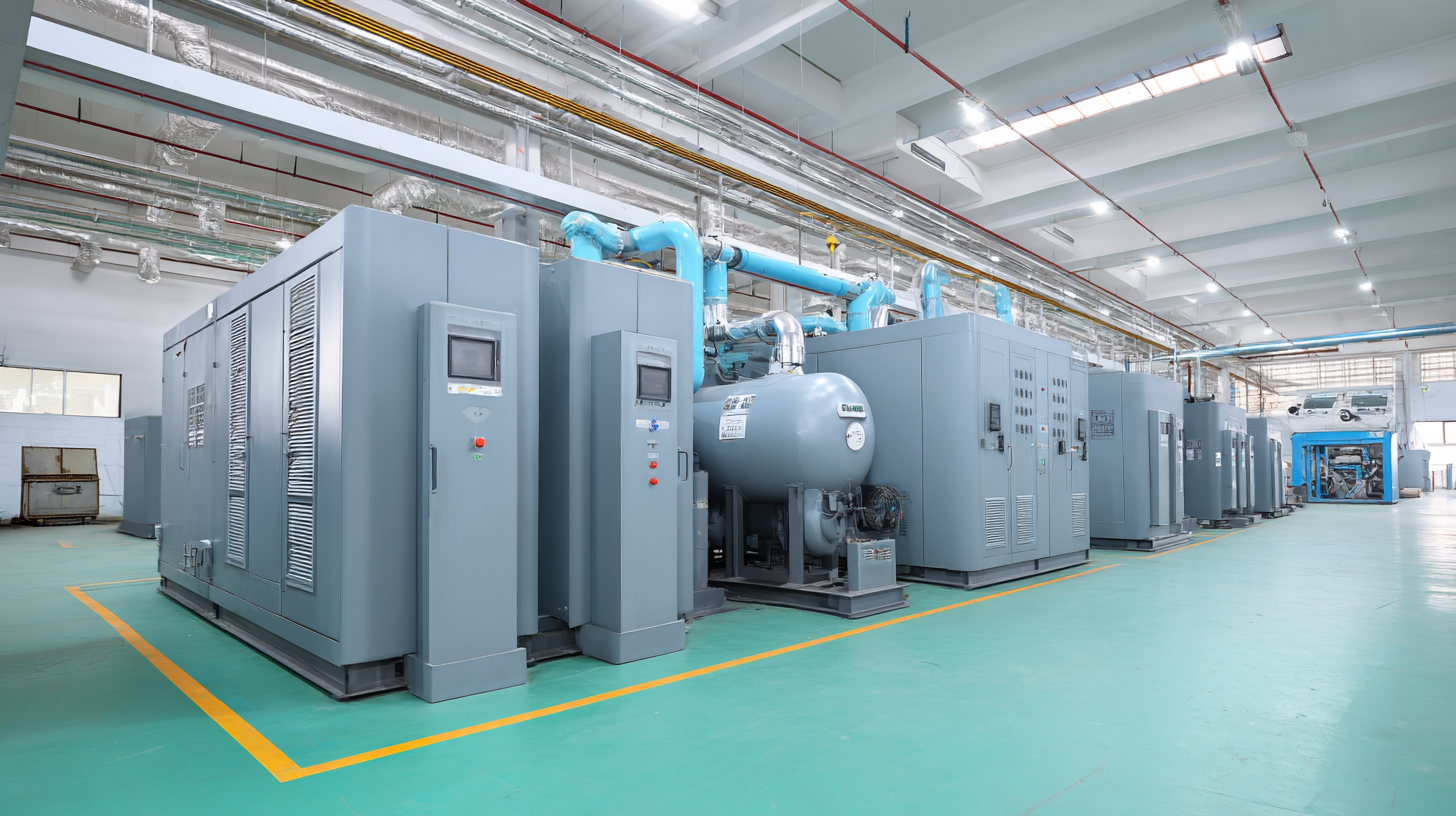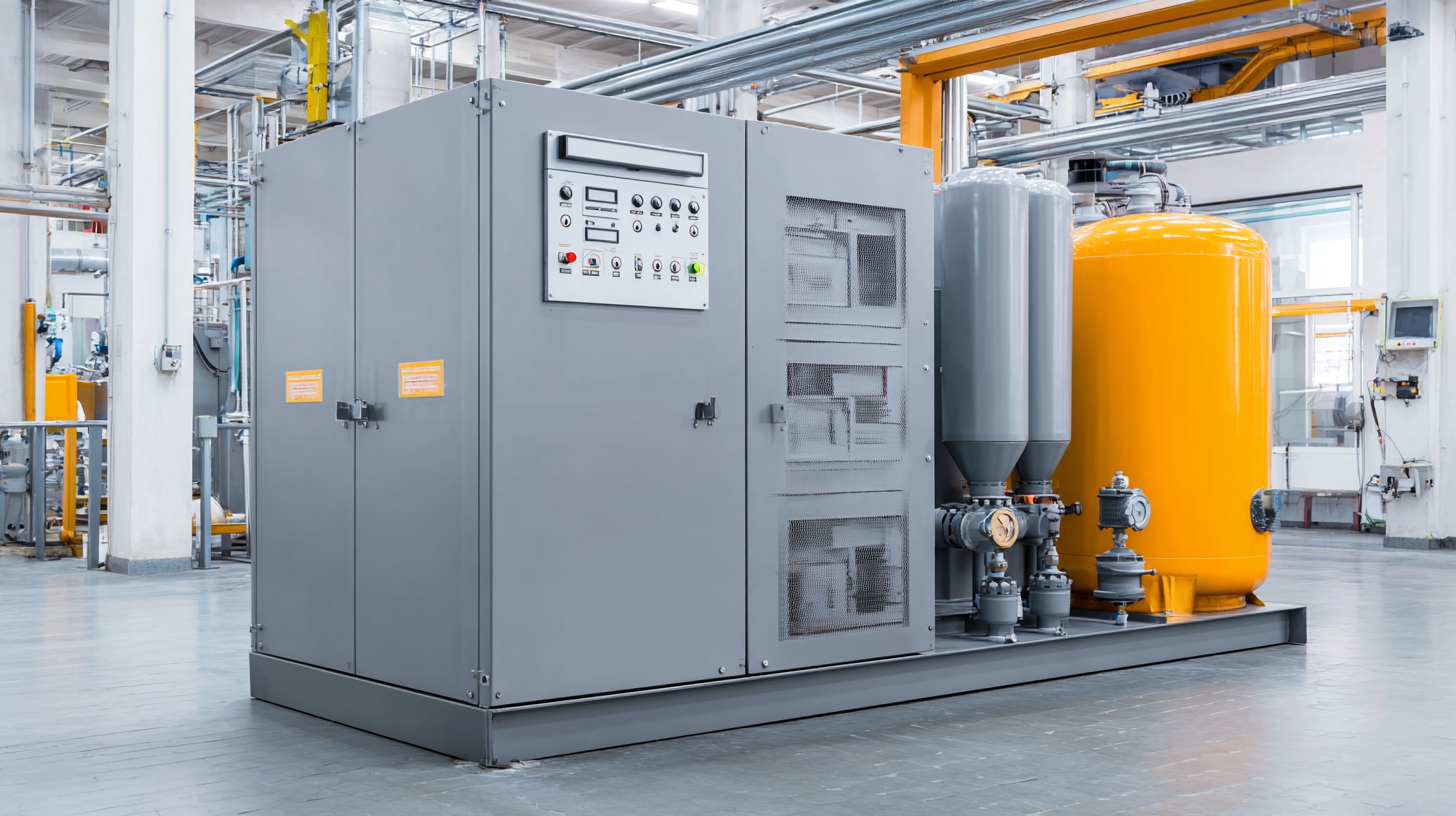
- sales@bjbod.com
- Mon - Sat at 7:00AM to 9:00PM

In the industrial sector, the quality of compressed air is crucial for ensuring operational efficiency and equipment longevity. According to a report by the Compressed Air and Gas Institute (CAGI), up to 70% of industrial pneumatic tools fail due to poor quality air. This highlights the importance of investing in a reliable Compressed Air Purifier to eliminate contaminants that can lead to costly downtimes and maintenance. With various types of purifiers available in the market, each designed to tackle specific impurities like moisture, oil, and dust, selecting the right one tailored to your unique industrial needs can be a daunting task. This guide will provide you with essential insights and criteria to help you navigate the complexities of choosing the best Compressed Air Purifier, ensuring your operations remain efficient and free from harmful pollutants.

When selecting a compressed air purifier for industrial applications, several factors must be considered to ensure optimal performance. One crucial aspect is the type of contaminants present in the air supply. According to the Compressed Air and Gas Institute (CAGI), particulate matter, moisture, and oil vapor are the three primary pollutants that can compromise product quality. For industries such as pharmaceuticals and food production, where cleanliness is paramount, a high-efficiency purifier that can remove particles down to 0.01 microns is essential.

Another significant factor is the flow rate required for your specific application. The American Society for Quality (ASQ) notes that varying industries have different demand levels, with some requiring purifiers that can handle flow rates of over 2000 SCFM (Standard Cubic Feet per Minute). It is vital to match the purifier's capacity with the peak demand of your operation to avoid performance bottlenecks. Additionally, energy efficiency should be evaluated; purifiers with lower pressure drops can significantly reduce energy consumption, which translates to cost savings over time. Choosing the right compressed air purifier not only enhances the quality of your operations but also ensures compliance with industry standards and regulations.
When selecting the best compressed air purifier for industrial applications, it's crucial to understand the various types available and their specific functions. Some common types include coalescing filters, activated carbon filters, and HEPA filters. Coalescing filters are effective in removing water and particulates from air, making them ideal for industries requiring dry air for pneumatic tools or processes. Activated carbon filters excel at adsorbing volatile organic compounds (VOCs) and odors, which is essential for maintaining a safe and clean environment in chemical production or food processing.
Moreover, the integration of advancements in adsorption technologies has brought about significant improvements in the efficiency and sustainability of compressed air purification systems. Notably, the incorporation of renewable energy sources into adsorption cooling systems can enhance their performance. As industries push toward sustainability goals, adopting these modern technologies not only helps in effectively controlling air quality but also contributes to reduced energy consumption. The growing emphasis on clean tech underscores the importance of selecting purifiers that align with both operational needs and environmental standards, ensuring compliance with regulations while supporting the overall goal of a greener industrial footprint.
| Type of Purifier | Application | Efficiency | Maintenance Requirements |
|---|---|---|---|
| Desiccant Purifier | Food and Beverage Processing | 99.9% at -40°F PDP | Regular media replacement |
| Coalescing Purifier | Industrial Manufacturing | 99.99% for water and oil | Filter element changes every 6-12 months |
| Activated Carbon Purifier | Pharmaceuticals | 98% removal of VOCs | Needs replacement depending on usage |
| Membrane Purifier | Electronics Manufacturing | High efficiency for specific gases | Low maintenance, few parts to replace |
When evaluating the efficiency of compressed air purifiers for industrial purposes, it's vital to consider their performance in targeted aerosol removal. Recent studies have shown that the integration of smart air purification technologies can significantly enhance air quality management while optimizing energy consumption. For example, systems that adaptively manage air purification in relation to building controls seem to improve both airflow and airborne contaminant reduction effectively. By measuring the effectiveness of these systems in real-time, industries can ensure a safer environment for workers while maintaining energy efficiency.
Furthermore, the assessment of portable air purifiers in varied settings, such as public buses and schools, highlights their ability to impact indoor air quality significantly. Research indicates that these devices can not only reduce particulate matter and improve lung function but also contribute positively to academic performance by enhancing overall air quality. When selecting a compressed air purifier, industries should focus on models that have proven effective in diverse environments while considering long-term benefits like energy savings and reduced exposure risks for employees.
Proper maintenance of your compressed air purifier is essential to ensure its longevity and optimal performance in industrial settings. Regularly inspecting and replacing filters is one of the most crucial tasks. Dirty or clogged filters can impede airflow and reduce efficiency, leading to higher operational costs. Make it a habit to check the filters monthly, and replace them according to the manufacturer's recommendations, or sooner if you notice a drop in performance.

Additionally, it’s important to monitor moisture levels in your compressed air system. Purifiers are designed to remove contaminants, but excess moisture can cause wear and tear. Implementing a consistent drainage schedule for moisture traps or using automatic drain valves can significantly reduce this risk. Lastly, keep the purifier clean and free of dust and debris by wiping it down regularly and ensuring proper airflow around the unit, which will contribute to its longevity and reliability in your operation.
When selecting a compressed air purifier for industrial applications, one of the most critical factors to consider is the balance between cost and quality. Often, businesses are tempted to opt for lower-priced models, thinking they can save money in the short term. However, cheaper options may compromise on filtration performance and durability, which can lead to higher maintenance costs and potential downtimes in the long run. Investing in a quality purifier that meets specific industrial requirements is essential for maintaining product integrity and operational efficiency.
To make an informed choice, assess your industrial needs by understanding the quality of air required for your processes. A higher initial investment in a robust purifier can translate into significant savings over time by reducing the risk of equipment failure and ensuring consistent product quality. It's also crucial to consider the total cost of ownership, which includes energy consumption, maintenance, and replacement filters. By prioritizing quality over the initial price tag, companies can ensure a more reliable air purification solution that safeguards their operations and enhances overall productivity.